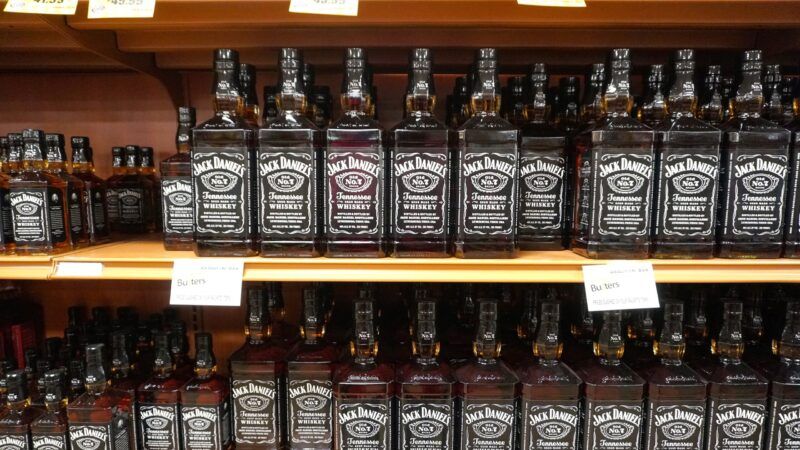Tariffs Are Starting To Crush America's Small Liquor Businesses
Trump’s trade war is hitting wineries, distillers, and distributors with product shortages and soaring costs—leaving customers to pick up the tab.

The alcohol industry recently dodged an attempt to smuggle a neo-Prohibitionist agenda into the U.S. Dietary Guidelines revisions. While the industry was able to breathe a sigh of relief thanks to this rule, its reprieve has been short-lived: President Donald Trump's tariff policies have started to hammer the industry once again.
On August 1, a 15 percent tariff went into effect on most European goods imported to America. Despite some initial hope that alcohol might be spared as part of a Trump-E.U. trade deal, the tariff remains in effect for booze, and it's U.S. small businesses that are bearing some of the highest costs.
During the first Trump administration, alcohol producers were hit hard by Trump's tariff policies, facing price increases on beer cans (from the aluminum tariffs) as well as painful retaliatory tariffs from other countries that targeted American alcohol. So far, the second Trump presidency appears to promise more of the same.
With the tariffs now officially in effect, small- and medium-sized wineries in California are reporting price increases on key input materials, including glass, corks, and barrels. The day after the tariffs took effect, Dresser Winery in Paso Robles, California, was informed by its Portugal-based cork maker that cork prices would increase by 15 percent—the manufacturer offered to pay 2 percent of the cost increase, leaving the winery to cover the remaining 13 percent.
Dresser Winery also sources its glass abroad, either from China or Mexico, and its barrels come from France or Hungary. As the winery's owner Kory Burke pointed out to The Columbian, simply swapping these goods for American-made products is far from simple. American glass bottles are expensive and harder to find, while American-made oak barrels would noticeably alter the flavor profile of the wine. Another California winery reported that the tariffs will raise their production costs by 50 cents per bottle.
The impact on the alcohol industry started being felt even before the tariffs officially went into effect, with prominent bourbon brands such as Brown-Forman (owner of Jack Daniel's and Woodford Reserve), Wild Turkey, and Bulleit all experiencing drops in bourbon sales over the summer in anticipation of the tariffs, partly due to export markets becoming more politically fraught. And none of this even includes the decision by Canada earlier this year to yank all U.S. alcohol from the shelves of its municipal-run liquor stores, which resulted in devastating sales declines for U.S. booze in Canada. (In 2024, Canada was the second-largest export market for American spirits.)
There are also lesser-known effects that are starting to have an impact. As Kevin D. Williamson noted recently in The Washington Post, the American three-tier system of alcohol distribution presents particular challenges for the industry when it comes to weathering tariffs. American alcohol distributors—who operate as a government-mandated middleman between producers and consumers—often derive higher profit margins on wines coming from countries like France and Italy.
As Williamson puts it, these imported wines help "sustain the distribution ecosystem that lower-margin U.S. producers rely on to get their products to market," which means that "European imports don't just compete with U.S.-made wines—they effectively subsidize their distribution." Williamson goes on to quote an alcohol distributor who derives 75 percent of its profits from European wine. "We need French, Spanish and Italian wines to make our business work," said Harry Root, co-founder of the South Carolina and Alabama distributor Grassroots Wine. "Remove any piece of the puzzle, and the whole thing doesn't work."
The cost of tariffs on the alcohol industry is no longer merely speculative. "It has real impacts," Burke said. "We've thought deeply about selling our property. We've thought deeply about…charging double our price for our bottle."
As has been the theme of Trump's trade war, in the end, it's American businesses and consumers that suffer.


Show Comments (214)